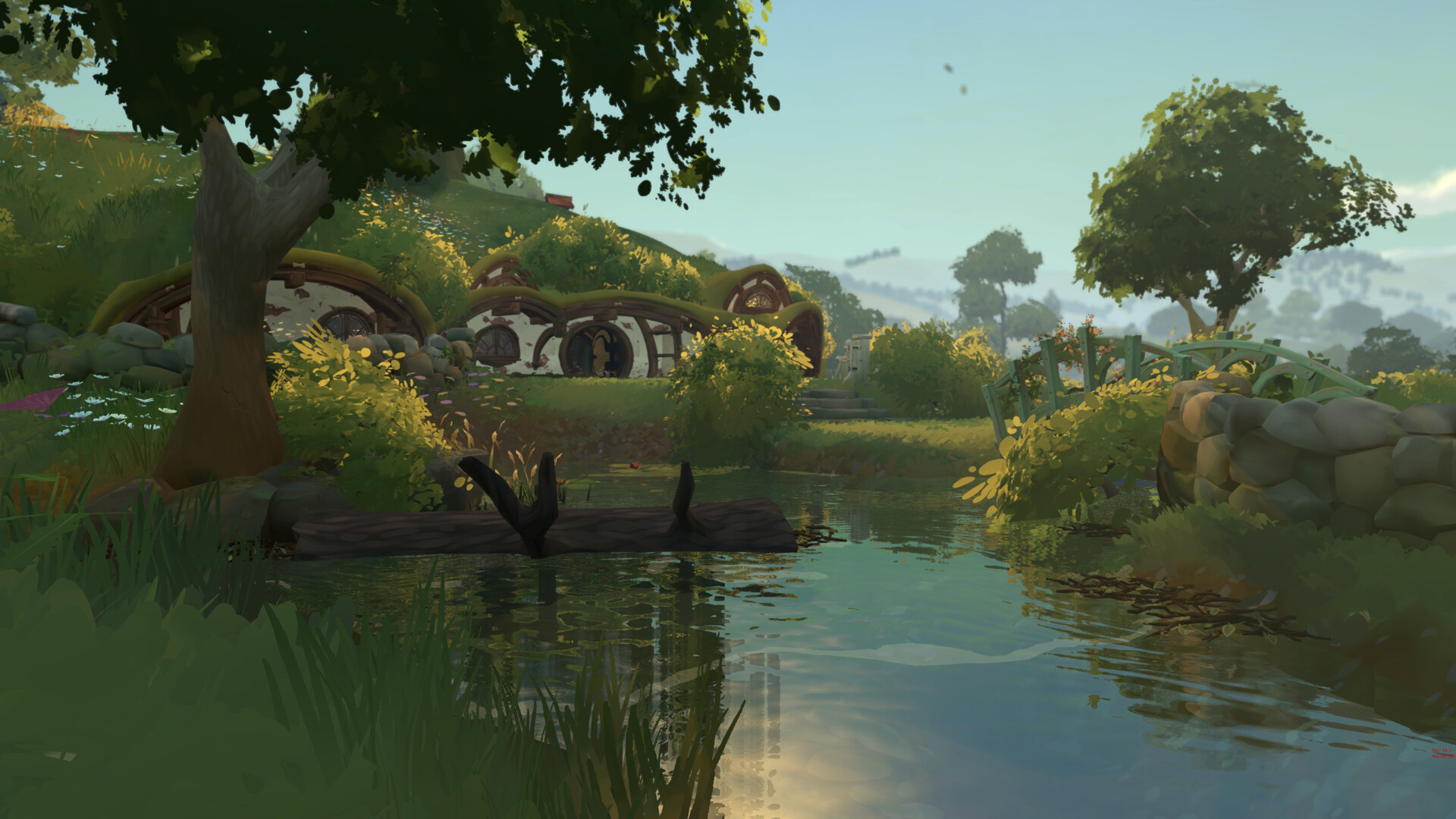
What a shame.
For someone like me who is desperate to get stuck into any whimsical life sim, Tales of the Shire sounds like a perfect match. On paper, it promises a cosy life in Middle-earth, filled with farming, decorating, cooking, and fishing. But the demo exhibits a desperate attempt to make a cosy game while the subgenre is so popular rather than focusing on building a game that welcomes new Lord of the Rings fans while letting long-time ones live out the dream of living as a hobbit. As a result you’re currently met with something that lacks an identity and is frankly just disappointing.
To start, a lot of it is boring. There’s no better way to put it. And that’s coming from someone who has put thousands of hours into plenty of life and farming simulators which revolve around a very simple task. Farming feels pretty pointless, aside from getting ingredients to cook, and there’s a lot you can cook without having to farm, which quickly stripped my willingness to do it in the first place. In the demo, you’re limited to only having five planters as well, rather than being able to customise and streamline your own farming space.
On the other hand, you have the option to go out and forage for ingredients, which I quickly opted for once I realised farming was giving me the same satisfaction as stubbing my toe. Foraging is one of the most detailed and engaging parts of Tales of the Shire, which came as a huge surprise given that it’s hardly spoken about by any NPCs in the few hours I spent in the demo. Rather than things like mushrooms being labelled with umbrella terms like “red toadstool” or even better—just mushroom—they are modelled and named after real-life edible mushrooms. I found a lot of joy in picking Puffballs and Chanterelles, or plucking Wild Beef off tree trunks and scurrying home like an excited raccoon to store my findings in the pantry before I had to gingerly pluck them out to cook with.
When it comes to cooking, a little more effort has been put in compared to farming. I mean, with the amount hobbits eat and talk about food, you’d expect the passion to shine through in the activity of preparing meals. But, even though it feels like cooking has more substance, it’s really just a lot of clicking and hoping for the best. You chop ingredients like vegetables to be either chunky or smooth depending on what you’re cooking, and have the option to fry them to alter the texture too. If you match the texture to what a small grid in the right hand corner suggests, your meal will be better quality and improve your friendship with whoever you invite over for dinner. It’s a total guessing game, but it’s more entertaining than watching taters grow in planters.
As for the story missions, a lot of the quests I was told to complete involved me going from one character to another to ask them about something, and then being told to go and find someone else to talk to. It felt like a never-ending chase for information with no real reward, and I ended up just being more frustrated at the game when I was prompted to move onto the next victim. But, I have to give Tales of the Shire the benefit of the doubt here as the demo only offers the first few hours of the game, and I understand that this was an easy way to make me familiar with the map and meet the other hobbits in the shire. But still, I can’t help feeling like it could’ve been executed in a more entertaining way than “go and ask them about a book”.
Plus, characters in Tales of the Shire are very simple and have no defining features to set them apart, which makes things tricky when you’re trying to familiarise yourself with everyone, or you’re asked to speak to someone specific. It’s like the same character model has been copy and pasted throughout the entire map, and even the character you create has nothing special to set it apart from the rest. A level of similarity is expected, given we’re all hobbits in the Shire, but the models feel so disappointingly lifeless. One of the only defining features of characters in the game is the addition of thick black eyelashes that make everyone appear like they’ve just started listening to My Chemical Romance and visited the drugstore for the cheapest eyeliner. Even Gandalf has fallen victim to this fashion trend, and I frankly think he’d be more of a smokey eye fan.
The Shire itself has more going for it thankfully. Even though it mirrors the same cutesy, chibi-esque style of the characters, locations like your home have a fair bit of detail. It does look like the kind of place I’d want to live in, with hobbit holes overflowing with flowers and vegetation, so it’s fun to explore to start. The map manages to offer quite a bit to see such as a market, a tavern, and plenty of other hobbit holes, without feeling too overwhelming, and I liked that a trail of birds leads you to your destination rather than you having to aimlessly run or skip around hoping you end up in the right place.
After spending four hours in the demo of Tales of the Shire, I’m confident in saying that it currently feels like a clumsy, half-baked attempt to resolve the last few years of Lord of the Rings games. There’s an extreme lack of substance to mechanics, characters, and even dialogue. So rather than being a turning point, it feels like another nail in the coffin. But now its release date has been pushed back to 2025, I find it hard to believe I’m the only person aware of its faults. I desperately want to remain hopeful that it will be the next game I accidentally pour hundreds of hours into, finding a new life for myself in one of the most whimsical worlds imaginable. For that to happen, though, a lot more work is going to need to be done between now and its launch next year.






